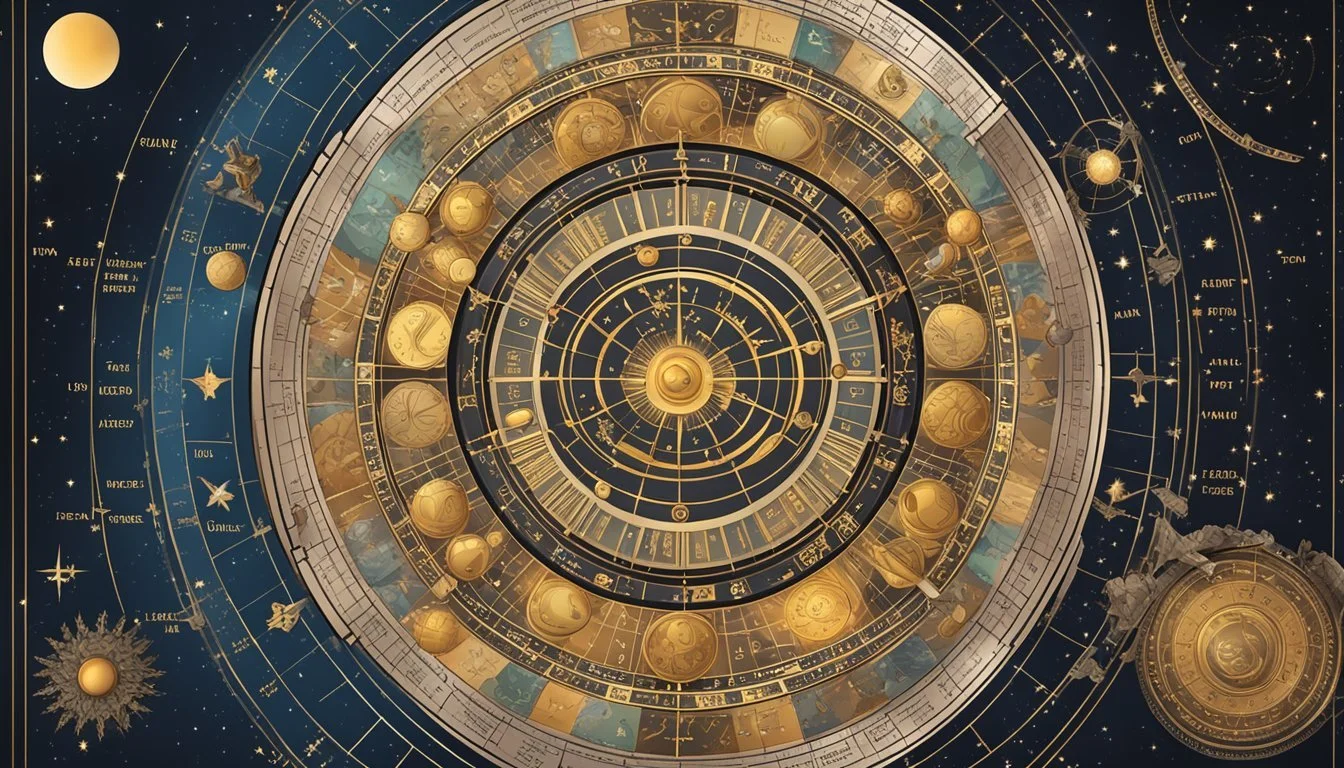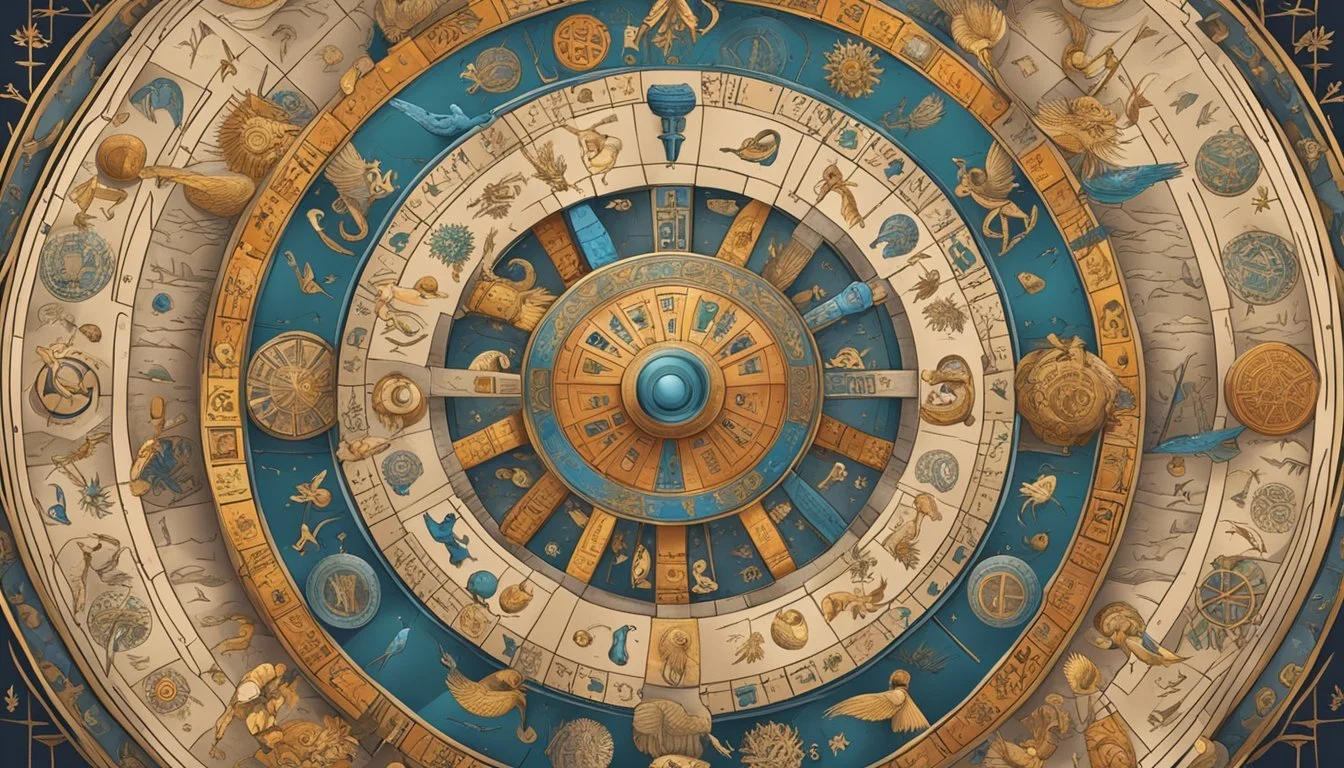Unlocking Astro Personality Types: What Your Zodiac Sign Reveals About You
Astro personality types offer a fascinating glimpse into human nature through the lens of astrology. Based on the zodiac signs, these personality archetypes suggest that the celestial positions at one's birth may influence character traits and behaviors.
The 12 zodiac signs - Aries, Taurus, Gemini, Cancer, Leo, Virgo, Libra, Scorpio, Sagittarius, Capricorn, Aquarius, and Pisces - each correspond to distinct personality profiles. These profiles encompass typical qualities, strengths, weaknesses, and tendencies associated with individuals born under each sign.
Astrology enthusiasts believe that understanding one's astro personality type can provide valuable insights into personal relationships, career paths, and life choices. While not scientifically proven, many find these astrological frameworks intriguing tools for self-reflection and interpersonal understanding.
Foundations of Astrological Personality
Astrological personality is rooted in the interplay of zodiac signs, elements, modalities, and planetary influences. These components form a complex system that astrologers use to interpret individual characteristics and tendencies.
The Twelve Zodiac Signs
The zodiac consists of twelve signs, each associated with distinct personality traits. These signs are determined by the sun's position at the time of birth. For example, Aries individuals are often described as confident and energetic, while Taurus natives tend to be patient and reliable.
Sun signs represent core identity, while moon signs reflect emotional nature. Rising signs, or ascendants, indicate outward behavior and first impressions.
Each sign has unique qualities:
Aries: Bold, impulsive
Taurus: Steady, practical
Gemini: Versatile, communicative
Cancer: Nurturing, intuitive
Leo: Charismatic, creative
Virgo: Analytical, detail-oriented
Libra: Balanced, diplomatic
Scorpio: Intense, mysterious
Sagittarius: Adventurous, philosophical
Capricorn: Ambitious, disciplined
Aquarius: Innovative, independent
Pisces: Empathetic, imaginative
Elements and Modalities
The zodiac signs are categorized into four elements and three modalities, adding depth to astrological interpretation.
Elements:
Fire (Aries, Leo, Sagittarius): Passionate, energetic
Earth (Taurus, Virgo, Capricorn): Practical, grounded
Air (Gemini, Libra, Aquarius): Intellectual, communicative
Water (Cancer, Scorpio, Pisces): Emotional, intuitive
Modalities:
Cardinal (Aries, Cancer, Libra, Capricorn): Initiating, active
Fixed (Taurus, Leo, Scorpio, Aquarius): Stable, resistant to change
Mutable (Gemini, Virgo, Sagittarius, Pisces): Adaptable, flexible
These classifications provide insight into how individuals approach life and interact with their environment.
The Planets and Their Influence
Planets play a crucial role in shaping astrological personality. Each planet governs different aspects of life and character:
Sun: Core identity, ego
Moon: Emotions, instincts
Mercury: Communication, intellect
Venus: Love, beauty, values
Mars: Energy, action, desire
Jupiter: Growth, expansion, philosophy
Saturn: Discipline, responsibility, limitations
Uranus: Innovation, rebellion, sudden change
Neptune: Spirituality, dreams, illusions
Pluto: Transformation, power, regeneration
The positions of these planets in relation to the zodiac signs at the time of birth create a unique astrological blueprint. This blueprint forms the basis for interpreting an individual's personality traits, strengths, and potential challenges.
Understanding the Birth Chart
The birth chart is a powerful tool for gaining insight into one's personality and life path. It captures the positions of celestial bodies at the exact moment of birth, providing a cosmic snapshot that astrologers interpret.
Sun, Moon, and Rising Signs
The Sun sign represents one's core essence and ego. It reflects basic personality traits and how an individual expresses themselves. The Moon sign governs emotions, instincts, and subconscious desires. It reveals inner feelings and reactions to life experiences.
The Rising sign, or Ascendant, symbolizes the mask one wears to the world. It influences first impressions and how others perceive an individual. This sign also determines the layout of the birth chart's houses.
Together, these three signs form the foundation of astrological interpretation. They offer a nuanced view of a person's character and tendencies.
Planetary Positions and Aspects
Planets in the birth chart represent different facets of personality and life experiences. Each planet's position in a zodiac sign and house provides unique insights.
Mercury governs communication and thinking processes. Venus relates to love and values. Mars signifies drive and assertiveness. Jupiter represents expansion and beliefs.
Aspects are angular relationships between planets. They indicate how different parts of the personality interact. Conjunctions show blended energies. Trines suggest harmony and ease. Squares denote tension and challenges.
Understanding planetary positions and aspects adds depth to birth chart analysis. It reveals complex patterns of behavior and potential life events.
Houses and Their Meanings
The 12 houses in a birth chart represent different areas of life. Each house governs specific themes and experiences.
The First House relates to self-image and appearance. The Fourth House represents home and family. The Seventh House deals with partnerships and relationships. The Tenth House signifies career and public image.
The Ninth House is associated with higher learning, philosophy, and long-distance travel. It influences one's worldview and quest for meaning.
House placements of planets and signs offer insights into where certain energies manifest in a person's life. They provide context for interpreting planetary influences and aspects.
Personality Traits by Zodiac Sign
Each zodiac sign is associated with distinct personality traits and characteristics. These astrological profiles offer insights into tendencies and behaviors linked to one's sun sign.
Aries to Virgo
Aries individuals are often bold and energetic. They tend to be natural leaders with a pioneering spirit. Taurus natives are known for their reliability and practicality. They value stability and can be quite determined.
Gemini people are typically versatile and communicative. Their quick wit and adaptability make them excellent conversationalists. Cancer signs are nurturing and intuitive. They have strong emotional connections and value family ties.
Leo personalities radiate confidence and charisma. They enjoy being in the spotlight and have a flair for drama. Virgo individuals are analytical and hardworking. Their attention to detail and practical approach make them efficient problem-solvers.
Libra to Pisces
Libra signs seek harmony and balance. They are diplomatic and often excel in social situations. Scorpio natives are intense and passionate. Their determination and resourcefulness can lead to transformative experiences.
Sagittarius individuals are optimistic and adventurous. They have a love for learning and exploring new ideas. Capricorn signs are ambitious and disciplined. Their pragmatic nature helps them achieve long-term goals.
Aquarius people are innovative and independent thinkers. They often have unique perspectives and a strong humanitarian streak. Pisces natives are intuitive and empathetic. Their imaginative nature can manifest in artistic or spiritual pursuits.
Zodiac Compatibility and Relationships
Zodiac compatibility provides insights into how different astrological signs interact in relationships. It examines personality traits, communication styles, and emotional needs to assess potential harmony between partners.
Assessing Compatibility
Zodiac compatibility evaluates the interaction between sun signs, moon signs, and other planetary placements. Sun sign compatibility offers a basic overview of potential dynamics. Moon sign compatibility reveals emotional connections and needs. Venus and Mars placements indicate romantic and sexual compatibility.
Astrologers use synastry charts to compare two individuals' natal charts. These charts highlight harmonious and challenging aspects between planets. Certain elemental combinations tend to work well together. Fire and air signs often have a natural affinity, as do earth and water signs.
Compatible signs typically share similar values and communication styles. They may have complementary strengths that balance each other out. However, compatibility goes beyond just matching signs. Individual experiences and personal growth also play significant roles.
Interpersonal Dynamics
Zodiac signs influence how people interact in various relationships. Air signs (Gemini, Libra, Aquarius) tend to be social and communicative. They often form intellectual connections with others. Fire signs (Aries, Leo, Sagittarius) bring enthusiasm and passion to relationships. They thrive on shared adventures and experiences.
Earth signs (Taurus, Virgo, Capricorn) value stability and practicality in relationships. They often build strong, long-lasting bonds. Water signs (Cancer, Scorpio, Pisces) are emotionally intuitive. They form deep, empathetic connections with others.
Some zodiac pairings may face challenges due to conflicting elements or qualities. For example, fixed signs (Taurus, Leo, Scorpio, Aquarius) can clash due to their stubborn nature. Mutable signs (Gemini, Virgo, Sagittarius, Pisces) may struggle with consistency in relationships.
Romantic Relationships
In romantic partnerships, zodiac compatibility can offer insights into potential strengths and challenges. Venus placements indicate how individuals express love and affection. Mars positions reveal sexual desires and passionate tendencies.
Compatible sun signs often share similar life philosophies and goals. For instance, cardinal signs (Aries, Cancer, Libra, Capricorn) may connect over their shared ambition and drive. However, opposites can also attract. Opposing signs on the zodiac wheel sometimes form powerful romantic bonds.
Astrological compatibility can highlight areas of potential conflict. It may reveal differing communication styles or emotional needs. This knowledge can help couples navigate challenges and foster understanding. Yet, it's important to remember that astrology is just one factor in relationship success.
Influence of Planetary Movements
Planetary movements shape our astrological experiences through transits, retrogrades, and eclipses. These celestial events can impact personality traits, emotions, and life circumstances.
Transits and Their Impact
Transits occur when planets move through different zodiac signs and houses in a birth chart. These movements can trigger significant changes or events in a person's life. For example, when Jupiter transits one's Sun sign, it often brings opportunities for growth and increased confidence.
Saturn transits tend to bring lessons and responsibilities. They may feel challenging but ultimately lead to personal development. Uranus transits can spark sudden changes or revelations.
Planetary transits affect different areas of life depending on the houses they move through. Career matters might shift during 10th house transits, while 7th house transits influence relationships.
Retrogrades and Eclipses
Retrograde periods occur when planets appear to move backwards from Earth's perspective. Mercury retrograde is the most well-known, often associated with communication mishaps and technology issues.
During retrogrades, the energy of the planet turns inward. This can be a time for reflection and reassessment. Venus retrograde may prompt reevaluation of relationships and values.
Eclipses are powerful lunar or solar events that can bring sudden changes or revelations. Solar eclipses often relate to new beginnings, while lunar eclipses may trigger endings or realizations.
Eclipses occurring in specific zodiac signs can affect those with prominent placements in those signs more strongly. The impact can last for several months after the eclipse.
Astrology in Everyday Life
Astrology influences various aspects of daily existence, from career choices to health practices and creative pursuits. Many individuals turn to astrological insights to guide their decisions and understand themselves better.
Career and Ambition
Astrological signs can offer guidance in career paths and professional goals. Ambitious individuals often consult their birth charts to identify strengths and potential challenges in the workplace. For example, fire signs like Aries, Leo, and Sagittarius are typically associated with leadership roles and entrepreneurial spirit.
Some companies use astrological compatibility when forming teams or assigning projects. Dependable earth signs such as Taurus, Virgo, and Capricorn are often sought after for their reliability and practical approach to work.
Horoscopes provide daily, weekly, or monthly career forecasts, which some professionals use to time important decisions or meetings.
Health and Wellness
Astrology plays a role in personal health management for many followers. Each zodiac sign is linked to specific body parts and potential health concerns. Aries, for instance, is associated with the head and prone to headaches.
Some individuals plan their exercise routines based on lunar cycles or planetary transits. Yoga and meditation practices may be timed to align with astrological events.
Holistic health practitioners sometimes incorporate astrological insights into treatment plans, considering a patient's sun sign and overall chart when recommending therapies or dietary changes.
Creativity and Recreation
Astrological beliefs can influence creative expression and leisure activities. Air signs like Gemini, Libra, and Aquarius are often drawn to intellectual and communicative arts such as writing or public speaking.
Water signs - Cancer, Scorpio, and Pisces - are typically associated with emotional depth and may excel in music, poetry, or visual arts. Creative individuals might consult their natal charts to understand their artistic strengths and potential blocks.
Recreational choices can also be guided by astrological preferences. Fire signs might enjoy competitive sports, while earth signs may prefer gardening or crafting. Some people plan vacations around astrological events, like viewing eclipses or visiting locations significant to their chart.
Advanced Astrological Concepts
Advanced astrology explores complex interactions between celestial bodies and human experiences. It delves deeper into the subtleties of planetary influences and their manifestations in personality and life events.
Astrological Duality
Duality in astrology reflects the complementary nature of opposing forces. The tropical zodiac, based on the spring equinox, divides the 12 star signs into six pairs of opposites. Each pair represents contrasting yet interconnected energies.
Aries and Libra embody the self versus relationships dynamic. Taurus and Scorpio contrast material and spiritual realms. Gemini and Sagittarius represent local versus global perspectives.
Cancer and Capricorn balance home life with career ambitions. Leo and Aquarius illustrate personal creativity versus group contributions. Virgo and Pisces exemplify analytical thinking and intuitive understanding.
These dualities offer insights into personal growth and relationship dynamics. They highlight areas of potential conflict and opportunities for balance in one's life and personality.
Astrological Houses and Angles
Astrological houses divide the sky into 12 segments, each representing different areas of life. The angles formed between these houses are crucial in chart interpretation.
The Ascendant marks the cusp of the first house, representing one's outward personality. The Midheaven, at the tenth house cusp, indicates career and public image.
The Descendant, opposite the Ascendant, relates to partnerships. The Imum Coeli, at the fourth house cusp, symbolizes home and family roots.
These four angles form the backbone of a natal chart. They interact with planets and zodiac signs to provide detailed insights into an individual's life experiences and potential.
Understanding house placements and angles enhances astrological interpretations, offering a more nuanced view of personality traits and life paths.
Cultural and Historical Perspective
Astrology has played a significant role in shaping beliefs and practices across diverse cultures throughout history. Its influence extends from ancient civilizations to modern interpretations, adapting to societal changes while maintaining core principles.
Astrology Across Civilizations
Babylonian astrology, dating back to the 2nd millennium BCE, laid the foundation for Western astrological traditions. The ancient Egyptians integrated celestial observations into their religious and daily life, associating specific deities with stars and constellations.
Greek astrologers refined these concepts, developing the zodiac system familiar today. In China, the 12-year cycle of animal signs emerged, linking birth years to personality traits and destinies.
Indian Vedic astrology, or Jyotish, evolved as a complex system incorporating planetary movements and karmic influences. Mesoamerican cultures like the Maya and Aztecs developed their own intricate astrological calendars, often tied to agricultural cycles and religious rituals.
Modern Astrology
The Renaissance period saw a revival of astrological interest in Europe, with notable figures like Nostradamus popularizing horoscopes. The 20th century brought new interpretations, including psychological astrology influenced by Carl Jung's work.
Contemporary astrology has diversified, embracing concepts like astro twins - individuals born at the same time and place, believed to share similar life paths. Online platforms and social media have made astrological content more accessible, leading to increased mainstream interest.
Critics argue against astrology's scientific validity, while proponents value its insights into personality and relationships. Despite ongoing debates, astrology continues to evolve, reflecting changing cultural perspectives and individual needs for meaning and self-understanding.



